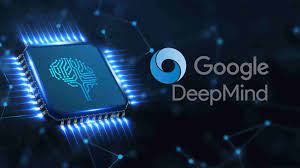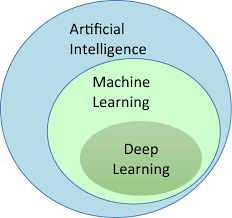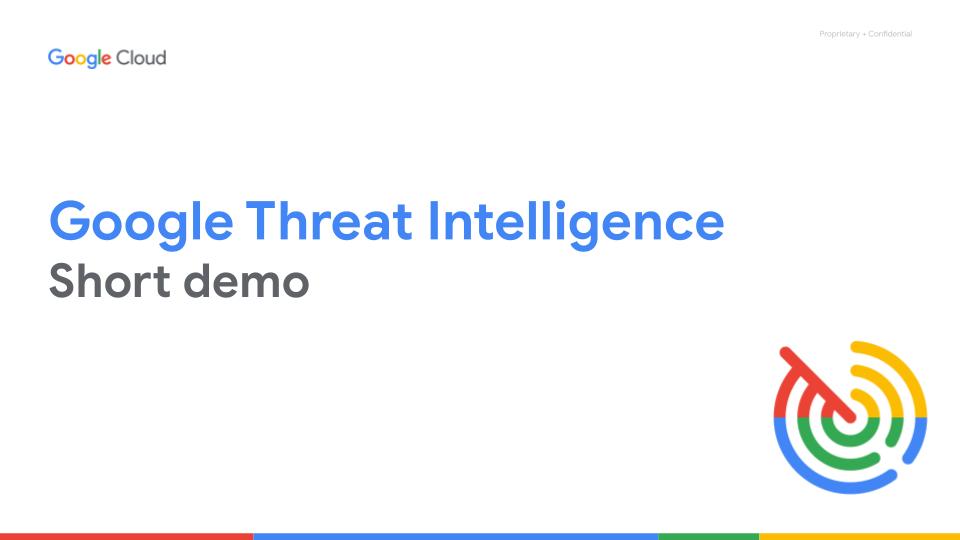Exploring Google DeepMind AI: A Revolution in Artificial Intelligence
Google DeepMind, a leading entity in the field of artificial intelligence, has been at the forefront of AI research and development since its inception. Founded in 2010 and acquired by Google in 2014, DeepMind has made significant strides in creating AI systems that push the boundaries of what machines can achieve.
The Origins of DeepMind
DeepMind was founded by Demis Hassabis, Shane Legg, and Mustafa Suleyman with a vision to combine insights from neuroscience and machine learning to create general-purpose learning algorithms. The goal was to build AI systems capable of solving complex problems across various domains without needing task-specific programming.
Breakthrough Achievements
One of DeepMind’s most notable achievements is the development of AlphaGo, an AI program that defeated world champion Go player Lee Sedol in 2016. This victory was significant because Go is an ancient board game with near-infinite possibilities, making it a challenging task for computers to master.
Following AlphaGo’s success, DeepMind developed AlphaZero, an even more advanced system capable of mastering games like chess, shogi, and Go without human intervention. AlphaZero learns purely through self-play and demonstrates remarkable strategic understanding.
Applications Beyond Gaming
While games have been a primary testing ground for DeepMind’s AI systems, their applications extend far beyond entertainment. In healthcare, for instance, DeepMind has partnered with medical institutions to develop AI tools for diagnosing eye diseases and predicting patient deterioration in hospitals.
The company is also exploring ways to improve energy efficiency using AI. In collaboration with Google’s data centers, DeepMind’s algorithms have reduced cooling costs by optimizing energy usage patterns.
The Future of DeepMind AI
As research continues to progress at an unprecedented pace, Google DeepMind remains committed to advancing artificial intelligence responsibly. Their focus on ethical considerations ensures that the deployment of AI technologies benefits society while minimizing potential risks.
The future holds immense possibilities as DeepMind continues its quest to create intelligent systems capable of solving some of humanity’s most pressing challenges. From climate change to healthcare advancements, the potential impact of their work is truly transformative.
Conclusion
Google DeepMind stands as a testament to the power and potential of artificial intelligence. With groundbreaking achievements already under its belt and ambitious goals for the future, it continues to lead the way toward a new era where intelligent machines collaborate with humans for a better world.
Exploring Google DeepMind AI: Key Questions and Insights
- What is Google DeepMind AI?
- How does DeepMind’s AlphaGo work?
- What are the applications of DeepMind AI beyond gaming?
- What ethical considerations does DeepMind take into account in its AI research?
- Can anyone access and use DeepMind’s AI technology?
- How has DeepMind contributed to advancements in healthcare through AI?
- What sets DeepMind’s AlphaZero apart from other AI systems?
- What are some future implications of Google DeepMind’s AI research?
What is Google DeepMind AI?
Google DeepMind AI is a cutting-edge artificial intelligence research lab that operates under the umbrella of Alphabet Inc., Google’s parent company. Founded in 2010 and acquired by Google in 2014, DeepMind focuses on developing general-purpose learning algorithms by combining insights from neuroscience and machine learning. The lab is renowned for its groundbreaking achievements, such as creating AlphaGo, the AI program that defeated a world champion Go player, and AlphaZero, which mastered games like chess and shogi through self-play. Beyond gaming, DeepMind applies its AI technology to various fields, including healthcare and energy efficiency, aiming to solve complex real-world problems while adhering to ethical considerations.
How does DeepMind’s AlphaGo work?
DeepMind’s AlphaGo operates through a combination of advanced machine learning techniques, particularly deep neural networks and reinforcement learning. Initially, AlphaGo was trained on a vast dataset of expert Go games to learn the game’s strategies and patterns. Through reinforcement learning, AlphaGo further refined its skills by playing millions of games against itself, continually improving and optimizing its gameplay strategy. The system uses a combination of Monte Carlo Tree Search and neural network evaluations to make decisions during gameplay, allowing it to anticipate opponent moves and make strategic choices. Overall, AlphaGo’s success stems from its ability to blend sophisticated algorithms with vast amounts of data to master the complexities of the ancient game of Go.
What are the applications of DeepMind AI beyond gaming?
Beyond gaming, DeepMind AI has a wide range of applications that are making significant impacts across various fields. In healthcare, DeepMind has partnered with medical institutions to develop AI tools for diagnosing complex diseases, such as eye conditions and kidney injuries, by analyzing medical imaging and patient data. These tools aim to enhance early detection and improve patient outcomes. In the realm of energy efficiency, DeepMind’s algorithms have been employed to optimize the cooling systems in Google’s data centers, leading to substantial reductions in energy consumption. Additionally, DeepMind is exploring AI applications in scientific research, such as protein folding with AlphaFold, which has the potential to revolutionize drug discovery and our understanding of biological processes. These diverse applications demonstrate DeepMind’s commitment to leveraging artificial intelligence for societal benefit beyond its initial successes in gaming.
What ethical considerations does DeepMind take into account in its AI research?
DeepMind places a strong emphasis on ethical considerations in its AI research to ensure that the development and deployment of artificial intelligence technologies are aligned with societal values and benefit humanity as a whole. The company is committed to principles such as transparency, fairness, and accountability in its AI systems. DeepMind actively engages with interdisciplinary experts, including ethicists, social scientists, and policy makers, to address potential biases and ensure equitable outcomes. Furthermore, the organization prioritizes safety and privacy by implementing robust data protection measures and conducting thorough risk assessments. By fostering an open dialogue about the implications of AI technology, DeepMind aims to create systems that are not only innovative but also ethically responsible.
Can anyone access and use DeepMind’s AI technology?
DeepMind’s AI technology is primarily developed for research purposes and specific collaborations, so it is not generally available for public access or use. The company focuses on advancing artificial intelligence through strategic partnerships and projects, often working with institutions, organizations, and industries to apply its AI systems in areas like healthcare, energy efficiency, and scientific research. While DeepMind occasionally publishes research papers and open-sources some of its tools or findings for the broader scientific community, direct access to their proprietary AI technologies is typically limited to collaborative efforts that align with their mission of using AI for the greater good.
How has DeepMind contributed to advancements in healthcare through AI?
DeepMind has significantly contributed to advancements in healthcare by leveraging AI to enhance diagnostic accuracy and patient care. One of its notable collaborations is with Moorfields Eye Hospital, where DeepMind developed an AI system capable of detecting over 50 eye diseases from retinal scans with accuracy comparable to leading experts. This technology aids in early diagnosis and treatment, potentially preventing vision loss. Additionally, DeepMind’s AI has been used to predict patient deterioration in hospitals by analyzing electronic health records, allowing for timely interventions. These innovations demonstrate how DeepMind’s AI research is transforming healthcare by improving outcomes and efficiency.
What sets DeepMind’s AlphaZero apart from other AI systems?
DeepMind’s AlphaZero distinguishes itself from other AI systems through its remarkable ability to master complex games without human intervention or domain-specific knowledge. Unlike traditional AI programs that rely on pre-programmed strategies and vast datasets, AlphaZero employs a general-purpose learning algorithm that enables it to learn purely through self-play. Starting from scratch, it plays millions of games against itself, refining its strategies and improving over time. This approach allows AlphaZero to develop an intuitive understanding of the game dynamics, making it highly adaptable and capable of achieving superhuman performance in games like chess, shogi, and Go. Its ability to generalize across different domains with minimal human input sets a new standard in AI research and showcases the potential for creating versatile AI systems that can tackle a wide range of challenges.
What are some future implications of Google DeepMind’s AI research?
The future implications of Google DeepMind’s AI research are vast and transformative, potentially impacting numerous sectors and aspects of daily life. As DeepMind continues to advance its AI technologies, we can expect significant developments in healthcare, such as improved diagnostic tools and personalized treatment plans that enhance patient outcomes. In the energy sector, AI-driven optimizations could lead to more efficient resource management and reduced carbon footprints. Additionally, DeepMind’s work in machine learning could revolutionize industries by automating complex tasks and improving decision-making processes. However, these advancements also necessitate careful consideration of ethical guidelines to ensure that AI technologies are developed responsibly and equitably, addressing concerns such as data privacy and algorithmic bias. Overall, the continued research by Google DeepMind holds the promise of solving some of humanity’s most pressing challenges while ushering in a new era of technological innovation.



